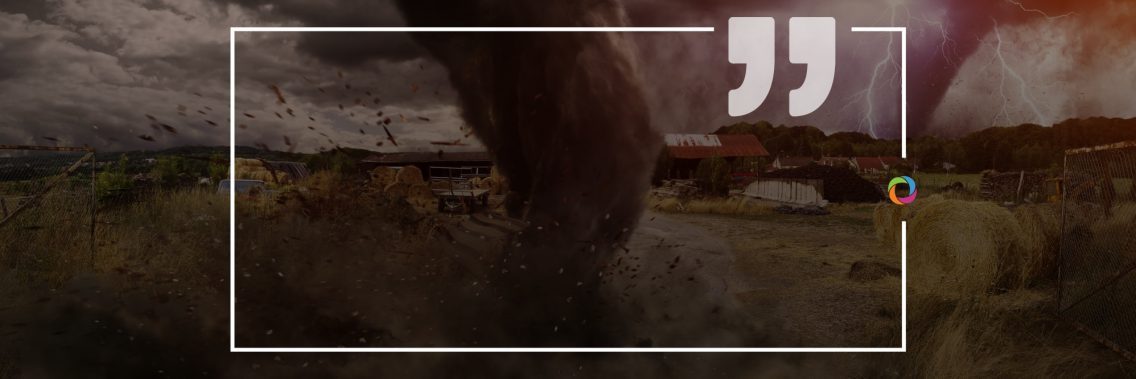In early November 2020, tropical storm Eta and hurricane Iota struck Central America causing massive damage and leaving thousands of people homeless. Central American presidents have emphasized that hurricanes occur as a result of the pollution and CO2 emissions caused by wealthy nations. We asked the opinions of several environmental experts about this allegation. Check their insights below.
What are your comments about this statement?

“It is a scientifically proven fact that the current amounts of CO2 emissions are generating the extreme climate change events that are happening more often and with more catastrophic effects due to the alteration of natural cycles and an increase in the oceans’ temperatures. While not only do the rich countries generate these emissions, they are also responsible for most of them, at a significantly higher level than underdeveloped countries such as those in Central America, due to their dependence on fossil fuels to produce the energy needed to maintain their consumption patterns, heating/cooling devices, agricultural/cattle production, transportation and wealth maintaining activities in general. This is what is defined as a “carbon footprint” that is always much higher for developed, rich, fossil fuels dependent countries than for third world countries. For further reference, The Intergovernmental Panel on Climate Change (IPCC) regular/updated publications about these issues are the best-unbiased information sources available.”

“The climate system is the interaction of different factors and climate change is a phenomenon attributed directly or indirectly to human activities that alter the composition of the atmosphere worldwide together with its natural variability. The United Nations Framework Convention on Climate Change (UNFCCC) has stated that most of the world’s greenhouse gas emissions originate in developed countries and are relatively low in developing countries.”

“The occurrence of extreme hydro-meteorological events such as hurricanes and droughts are increasing in the Central American region. Climate change, as a consequence of the increase in CO2 emissions by human activity in the industrial and post-industrial eras, is largely responsible for this. Although Central America is not a significant contributor to greenhouse gas emissions, it is certainly one of the most vulnerable regions to climate risks. This was confirmed by the losses and damages that hurricanes Eta and Iota alone left in 2020: nearly 260 deaths, 400,000 displaced people, houses and roads destroyed, crops lost. Economic losses were estimated at about US$5,000 million with nearly 4.6 million people affected. Poverty and dependence on climate-sensitive activities such as agriculture, cattle farming, and tourism are determining vulnerability factors.”

“We all are responsible for the results of our actions regarding our environment and natural resources, whether we are a rich or poor country.”
What could the further consequences be if no steps are taken now?

“Besides the obvious repetition of these catastrophic seasonal events, the consequences are global in scope and not only restricted to Central America and other third-world countries susceptible to extreme climate change events. And actually, these events are socio-environmental as they affect the mere survival of local populations living in these regions/countries and have “ripple” effects on the global economy and the whole ecosystem’s health and homeostasis. So, basically, the consequences will affect each and every one of us, sooner or later. The main problem is that humankind has lost its sense of long-term thinking and prevention/adaptation.”

“The science reveals that since 1970, the storm energy associated with sea surface temperatures is increasing the frequency of tropical storms. Geographically, Central American countries are vulnerable to tropical storms due to their location between the Atlantic and Pacific oceans and the associated greenhouse emission effects of the sea surface temperatures.”

“I have seen these occurrences of extreme weather in the Central American region and I believe they will continue to happen. In the past few weeks we have had precipitation in El Salvador during our dry season and although this has in fact occurred once in a while, now they happen more often and dump more rain than in previous cases. This will impact agriculture and other biological processes for months to come with unknown consequences.”
What are some of the solutions to counteract these natural disasters?

“Adaptation measures need to be urgently taken and due to the current global technological limitations, the first one would be to secure carbon sequestration means, in short, conservation/preservation of functional/biodiversity-rich forests, watersheds, soils, and marine ecosystems by diverting financial resources to do this, from both fossil fuel investments and military budgets globally. Mitigation measures should continue as well (renewable energy source investments, responsible consumption patterns, and parenthood adoption) mainly in rich countries. Sustainable agriculture/forestry/cattle-raising methods should also be increased everywhere at a global level as well as a substantial increase in local markets’ consumption development and enhancement as they both have a direct relationship to GHG emissions and the catastrophic consequences described.”

“To counteract climate change, Central American countries, as a member of UNCCD, are conducting mechanisms and projects to achieve carbon neutrality by protecting and conserving forest ecosystems and by capturing CO2 to mitigate climate change. Eta and Iota caused massive damage to livelihoods, health, homes, education, infrastructure, transport, agriculture, tourism, commerce, the environment (water, soil, forest, biodiversity, and landscapes) in the vulnerable areas of Nicaragua, Honduras, Guatemala, El Salvador and Costa Rica. The recovery strategy included the assessment of the losses and damages, recovery plans and investments from national and international fund support.”

“To avoid more scenes like those caused by Eta and Iota, it is imperative to strengthen regional climate adaptation policies and invest in effective actions to build resilience. Natural ecosystems are certainly an asset in Central America. Restoring ecosystems and implementing innovative, nature-based solutions can contribute to reducing vulnerabilities and take advantage of opportunities for sustainable and better livelihoods. Also, capacity building opportunities can provide tools for communities to improve their adaptive capacities. In all cases, climate change adaptation and resilience approaches should be inclusive and fair.”

“We need to take more forceful action regarding deforestation and urban planning. I am a witness of the erratic weather patterns that have brought extreme weather compared to those that I remember happening during my first 30 years of living in El Salvador when season and weather pattern changes were more predictable by far.”
Check out more than 340 job opportunities in the Environment and Disaster Reduction sectors here.

